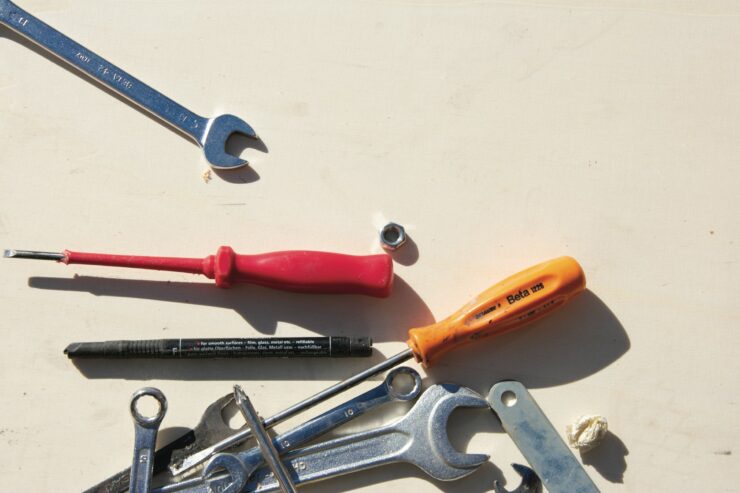An emergency fund is an amount of money that has been specifically saved for any financial surprises that life throws at you.
The list of financial surprises is unfortunately a long one. You could unexpectedly lose your job, have to pay for last minute medical or dental expenses, or have to carry out unplanned home maintenance. What about if you have problems with your car that need fixing straight away? Or, you have to cough up for unexpected travel expenses?
No one can predict when, or if, these things will happen, so being prepared for all eventualities is key. Without an emergency fund, you could be forced into borrowing the money, which if not managed properly, could get expensive.
Is An Emergency Fund The Same As A Sinking Fund?
Emergency funds and sinking funds are similar, but they should not be confused.
The money in an emergency fund should only be used in a financial emergency. Avoid using this money for things like holidays, Christmas presents, redecorating your home, and school fees. You should start a sinking fund for items like this.
Keep any money in an emergency fund and a sinking fund separate from your everyday spending account. This will help reduce any temptation to spend, and means you’re more likely to hit your big savings goal.
Why You Need An Emergency Fund
For financial emergencies:
This first point is a little obvious, but you need an emergency fund to help you pay for unexpected financial emergencies. Even if you’re confident that your job is secure, it’s much harder to predict medical emergencies, pet problems, and house maintenance issues. Don’t let any of these issues catch you out and set you back in your financial journey.
Peace of mind:
Having a substantial emergency fund can massively help to reduce some of your money worries. If you have a pot of money that can be accessed at a moment’s notice, you’ll stress less about things going wrong.
Freedom:
Losing your job is one of the most common reasons people start an emergency fund, but having money set aside in this way also gives you the freedom to leave a job that you’re not happy with.
Less likely to get into debt:
Without an emergency fund you might have to rely on credit cards, overdraft, or loans. These options are generally ok when used properly, but can lead to financial hurdles when mismanaged. It’s easier than you think to get into problem debt, and much harder than you think to get out of it, so it’s always a good idea to have a financial backup like an emergency fund.
How Much Do You Need In An Emergency Fund?
Ideally you would have three to six months worth of expenses in an emergency fund. This simply means that if your income was cut, you’d be able to continue paying all your bills, your mortgage or rent and buy groceries until you could access a new income stream.
To calculate three to six months worth of expenses, add up how much you spend each month on your essential items and then times by 3 / 6.
For example, you know that each month you spend £1,000 on essential items (rent, utilities, transport costs, groceries). For your emergency fund to last you six months, you now know you need to save £6,000.
Once you have a savings goal in mind, work out a plan for saving this money. Getting the money together should be a priority, but you need to be realistic. How much money can you begin adding into an emergency fund without cutting out everything you enjoy in life? Getting into the habit of saving small amounts regularly is an effective way to start building up your fund.
If you’re struggling to put anything into an emergency fund, consider whether you can somehow make more money. Look at your bills and see if you can reduce your monthly payments. Or even cut back on some of your more expensive expenses and adopt a more frugal mindset when it comes to your spending.
Budgeting apps, like Emma, are great at identifying areas of your spending you can reduce. Emma can even help you find cheaper bills, and spot any unwanted subscriptions.
When You Might Not Need An Emergency Fund
There are some instances when building an emergency fund might not be the best option.
If you have any of the expenses listed below, it might make more sense to focus on paying these off first.
- Credit card debt
- Payday loans
- Unauthorised overdrafts
- Arrears on mortgage payments
If now is not the right time to start building your fund, but you want to protect yourself financially in some way, then consider if taking out various insurance policies is an option more suited to you.
There are lots of types of insurance that can help you financially from unexpected situations, such as car insurance, or household insurance.
Summary
Emergency funds play a big part in having complete financial security.
If you can, keep a little money aside for financial emergencies. With Emma Pots you can start putting some money aside and earn interest on your savings!
You never know when you’re going to need the extra cash, but when an emergency arises you’ll be so pleased that you took the steps to create an emergency fund.







[…] Starting an Emergency Fund […]
[…] level of financial security. No one can predict the future, and having money saved up gives us a safety net in the event of job loss, pay cuts, and unexpectedly large […]
[…] money to cover the deposit, valuation fees, survey fees, etc, and have some money leftover in an emergency fund that you can use to fall back on if you […]
[…] emergency fund is an amount of money that’s been set aside specifically for use in an […]
[…] Emergency fund, or rainy day fund, as some people like to call it, is an amount of money that has been set aside specifically for emergencies. […]
[…] you have an emergency fund you might prefer to use this money to pay your car insurance instead. If you do, calculate how much […]
[…] becoming debt-free I now also budget for larger expenses, and I even have a rainy-day savings pot. I still use a credit card, but I like to pay as much as possible off my credit cards each month […]
[…] an emergency fund is essential for financial security. The rule of thumb is to save three to six months’ worth […]
[…] to define your financial goals. Establish short-term and long-term objectives, such as building an emergency fund, saving for a vacation, or paying off debt. Having clear goals will help you prioritise and […]
[…] can make the most significant impact. Consider factors such as paying off debts, building an emergency fund, contributing to retirement savings, or investing for long-term […]
[…] of the key components of the Pay Yourself First rule is the establishment of an emergency fund. An emergency fund is a reserve of cash set aside to cover unexpected expenses or financial […]